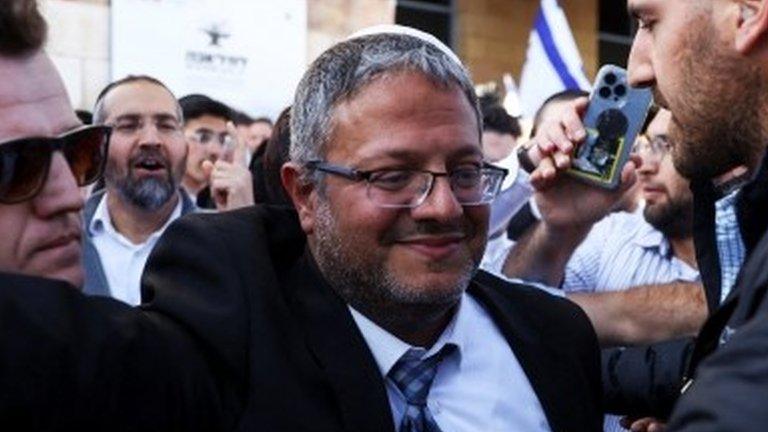Israel-Gaza: Unusual pre-emptive hit by Israel pays off
- Published
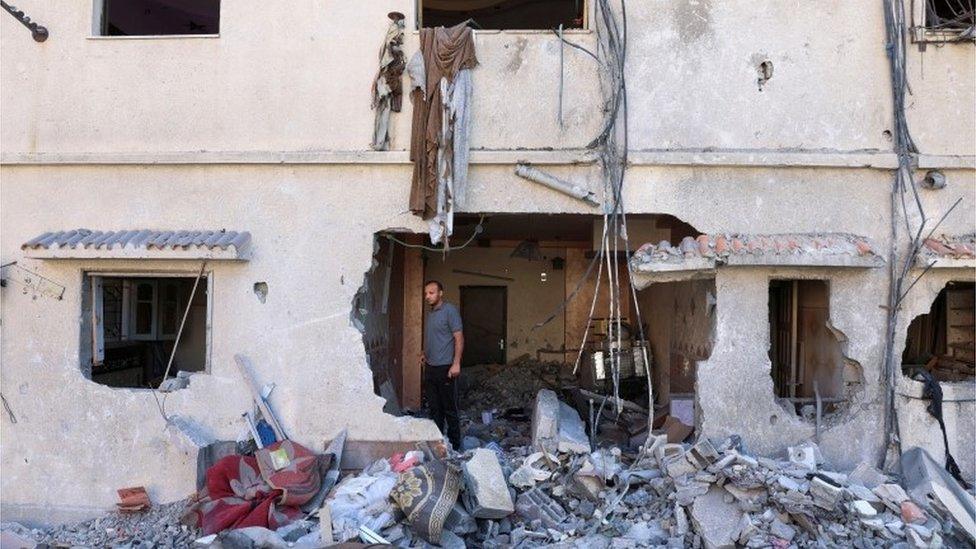
Repeated cycles of violence in one of the world's poorest areas breeds uncertainty and resentment
Palestinian families are setting up makeshift shelters in the rubble of their homes, as they clear up following the intense Israeli bombardment of the Gaza Strip over three days.
In southern Israel - which was targeted with hundreds of rockets by Palestinian Islamic Jihad (PIJ) militants - people have left their air raid shelters to go to their offices, shopping centres and parks.
As the ceasefire brokered by Egypt appears to be sticking, Israelis and Palestinians give starkly different views on what just happened and why.
Israel says that it launched its military operation, codenamed Breaking Dawn, in response to a direct and immediate threat from PIJ militants. Questions are being asked about the nature of that threat.
Tensions had risen sharply since Israel's arrest of Bassem Saadi, said to be the top PIJ figure in the occupied West Bank, last week.
Israeli officials are giving few details, but say they had "precise, detailed intelligence" that the Iran-backed militant group - which has its stronghold in Gaza - was planning to attack military or civilian targets nearby with sniper or anti-tank fire.
Still, it was unusual for Israel to make a pre-emptive strike on the Palestinian territory.
But from an Israeli perspective, the risk paid off. This was one of its most successful rounds of fighting with militants there.
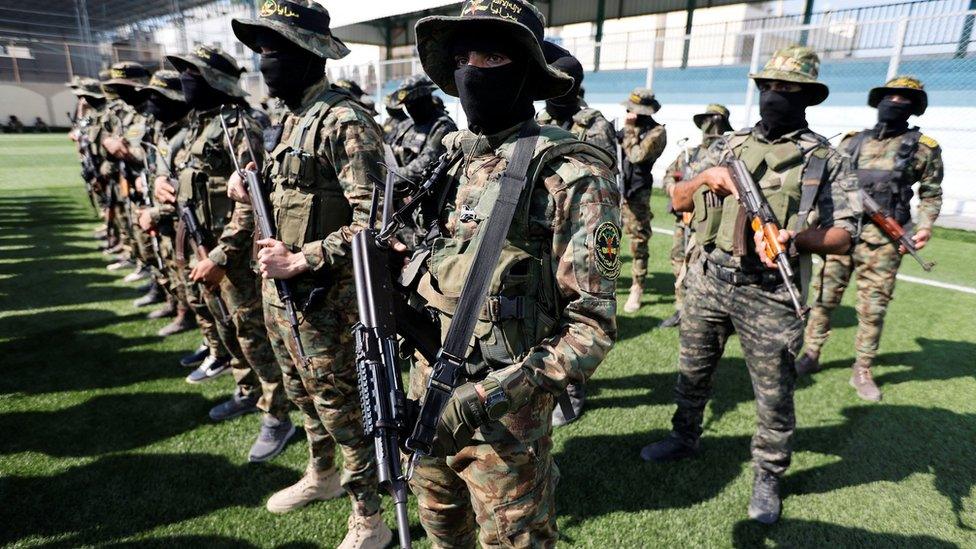
PIJ militants claim victory, but Israel says it has put them back by decades
PIJ lost its two most senior commanders on the ground, Tayseer Jaabari and Khaled Mansour, as well as sites used to manufacture and store missiles, command headquarters and outposts. The IDF says it hit 170 PIJ targets.
A senior Israeli official assesses that it has dealt "a very serious blow" to PIJ and "taken them back decades".
Claims by the PIJ leader, Ziad Nakhalah, who is visiting Iran, that this was "a victory" are far less convincing.
Militants did muster a show of strength, firing some 1,100 rockets (according to Israeli figures) from their ample arsenal at Israel and setting off warning sirens in Tel Aviv and even Jerusalem.
But the Iron Dome defence system prevented them from any significant military achievements and helped stop any deaths of Israelis, although dozens suffered minor injuries.
Self-inflicted casualties?
A key point in the latest conflict is that Hamas, the more powerful Islamist militant group that governs Gaza, decided to stay out of the fray, just as it did in 2019 when Israeli fire focused on Islamic Jihad. This limited the escalation.
Speculation was rife that if the fighting went on, pushing up the number of Palestinian civilians killed, then Hamas would feel forced to join in.
The peak of that was on Saturday night, when five people - including four children - were killed in the Jabalia refugees camp in northern Gaza.
Pictures of the bodies, shared widely on social media, inflamed Palestinian public opinion.
However, Israel said that it could prove - with video evidence - that the explosion was not caused by an Israeli air strike, but by a misfired Palestinian rocket.
Palestinian witnesses do report seeing faulty PIJ launches in this conflict.
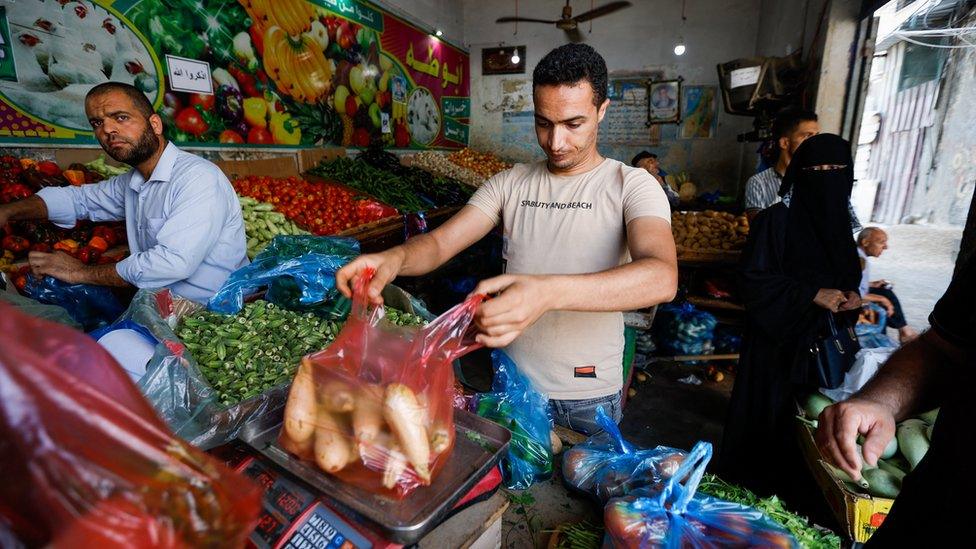
Normality has returned to Gaza's cities - but for how long?
The IDF spokesman has briefed journalists that one-fifth of the rockets PIJ fired ultimately landed and exploded inside the Gaza Strip.
There is no way to check the figures independently, but the spokesman says 15 innocent Palestinians were killed by PIJ fire, compared with 11 by Israeli attacks.
Palestinian health officials put the total number of dead at 44, including 15 children and four women. More than 300 were injured.
With ambulances constantly screeching into hospitals across the Gaza Strip during the fighting, concerns rapidly grew about the deteriorating humanitarian situation and led to international pressure for a truce.
Gaza relies almost completely on imported goods brought in via Israel and its crossings had been closed since the threats of PIJ retaliation for the Saadi arrest.
Initial talks mediated by Egypt were for a pause in the fighting to bring in emergency fuel. However, they soon turned into negotiations for a full ceasefire.
With calm restored, the first lorries carrying diesel, aid and medicines have now rolled into Gaza through the Kerem Shalom crossing. The sole power station in the Strip is running again.
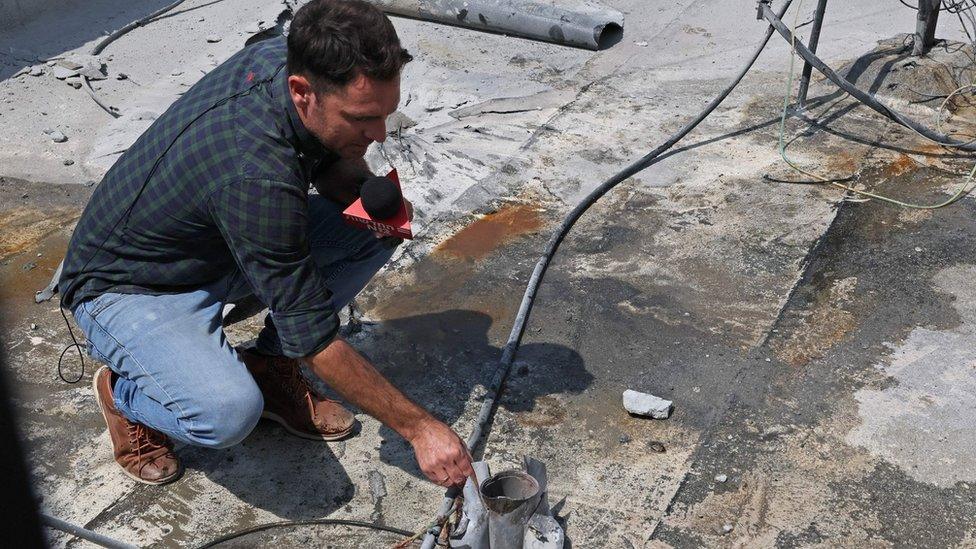
Israeli communities close to Gaza also live under constant fear
In Gaza, the complaints made by residents following this conflict are familiar ones. A mother of four asked why Gazans had had to pay the price for the arrest of someone in the West Bank.
She expressed relief that her house, recently rebuilt after last year's violence, suffered no more than broken windows from this flare-up, but said her biggest concern was "the psychological damage" to her daughters.
"This time was very different - it was very planned, very limited goals, very short," said Brouria Carni Hadass from Kerem Shalom kibbutz, an Israeli town close to the border with Gaza. She said she was glad the fighting was over but added: "We'll probably go through it again and again."
The lack of a peace process between Israel and the Palestinians ensures that every ceasefire between the two sides is only temporary.

Gaza Strip: The basics
Home to about two million people, it is one of the most densely populated areas in the world
It is run by the militant Islamist group Hamas, with rival Palestinian Authority - recognised internationally as representing all Palestinians - governing part of the West Bank
Palestinian Islamic Jihad (PIJ)- one of several militant groups operating in Gaza - co-operates with Hamas, but also maintains independence



In November 2019, Israel and PIJ fought a five-day conflict following the killing by Israel of a PIJ commander who Israel said had been planning an imminent attack. The violence left 34 Palestinians dead and 111 injured, while 63 Israelis needed medical treatment.
Israel said 25 of the Palestinians killed were militants, including those hit while preparing to launch rockets.
Watch: Moment air strike hits building in Gaza
- Published24 June 2022
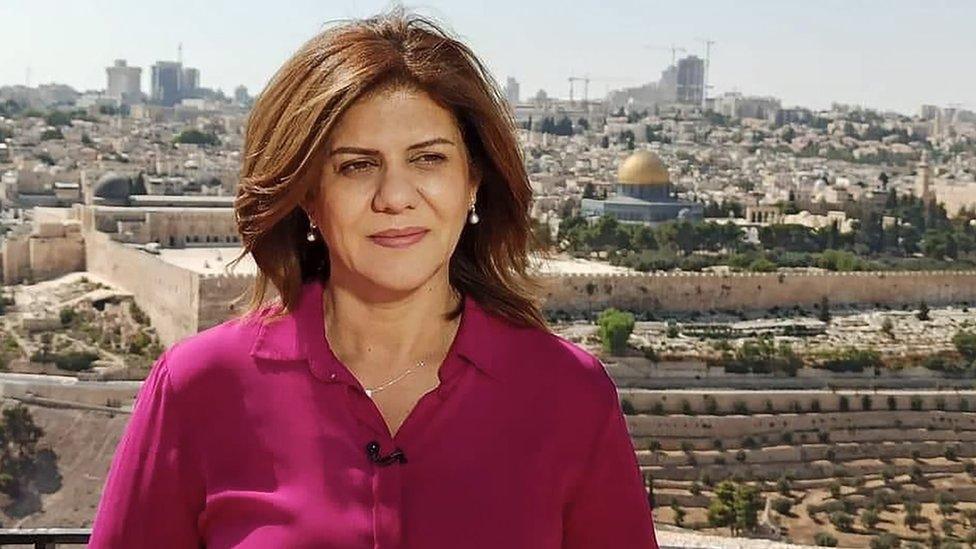
- Published24 May 2022
